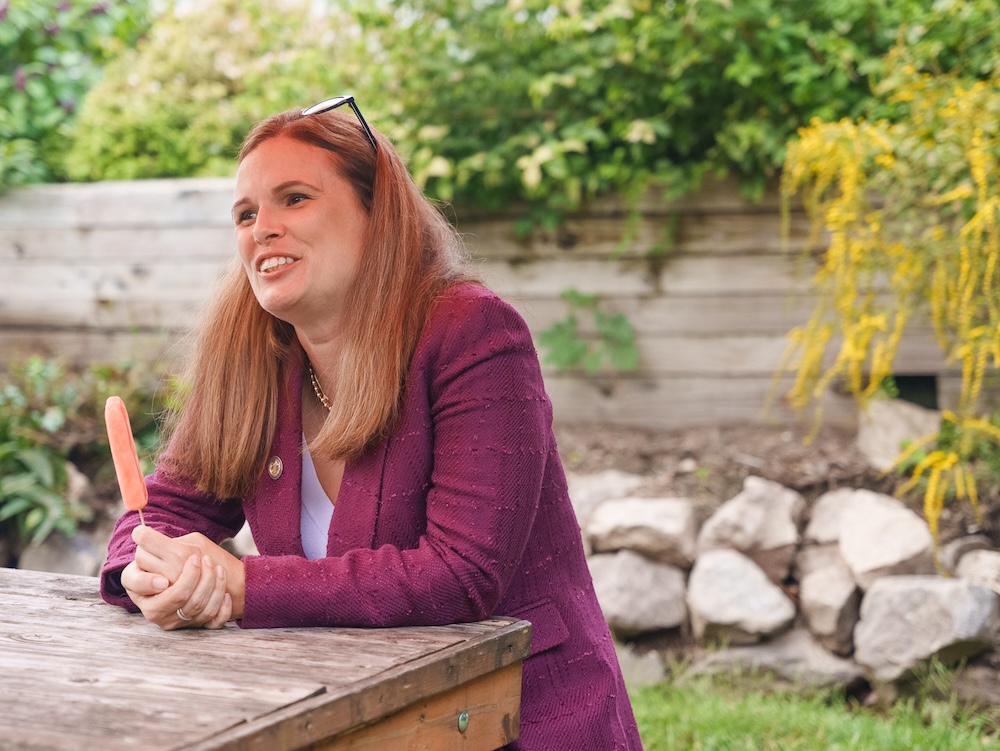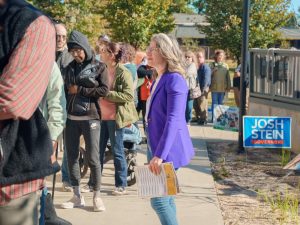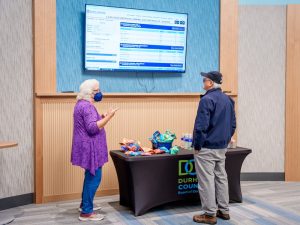This election season, The 9th Street Journal is sitting down with candidates to chat about their priorities — over frozen pops.
Our reporter Esmé Fox spoke recently with Allison Riggs, a Democrat who is running to keep her seat on the state Supreme Court. The interview has been lightly edited for length and clarity.

Esmé Fox, The 9th Street Journal: What’s at stake in the North Carolina State Supreme Court race, and why should voters care about this race in particular?
Allison Riggs: I hope voters remember that we’ve got three branches of government and that we deserve to have all three branches of government working for the people. The executive branch takes up a lot of oxygen in any room — the President and the governor — but our system is designed to be one of checks and balances. When every branch is doing the work it’s supposed to be doing, then the people benefit.
9th Street: What do you see as the most important North Carolina Supreme Court case in the past 10 years?
I’ll point out one that I litigated, a case called Harper v. Hall. The North Carolina Supreme Court said that extreme partisan gerrymandering was unconstitutional under our state constitution. Then the North Carolina Supreme Court in 2023, before I joined, reversed that decision.
I think that line of cases is important for North Carolina voters, because it represents the ways in which judicial elections have consequences.
If you want to vote in districts where your vote matters, where the winners of elections aren’t predetermined, you have to care about our courts. Because those decisions are being rendered by our state courts.
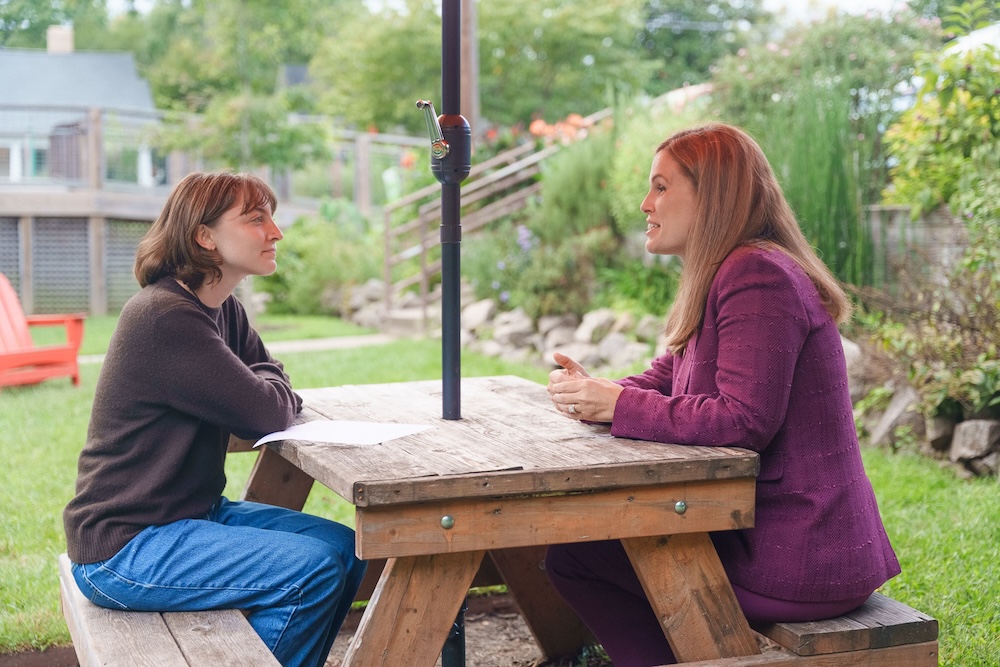
Allison Riggs: I served on the Court of Appeals in the middle there for nearly a year. I’m really proud of the record I built on the Court of Appeals, in part because it’s why Governor Cooper entrusted me with the promotion to serve on the Supreme Court, and in part because I have a record of building bridges.
I think people didn’t expect that from me, given the kind of practice I had before. But I’m deeply curious and humble, and I think that makes for a great judge, because I’m willing to listen.
I’m also a scientist by training. I was a microbiology major in undergrad and worked in a neurotoxicology lab, so I have this scientific method approach. I’m willing to be proven wrong. I’m willing to listen to someone else’s perspective and understand it, because I ultimately want to get to the right decision, not see my position vindicated or win a fight.
That’s what I’m the most proud of. I don’t know that I’ve made mistakes. I think there’s always room for growth. There are areas of law that I was more steeped in given my practice, and areas of law that I am not.
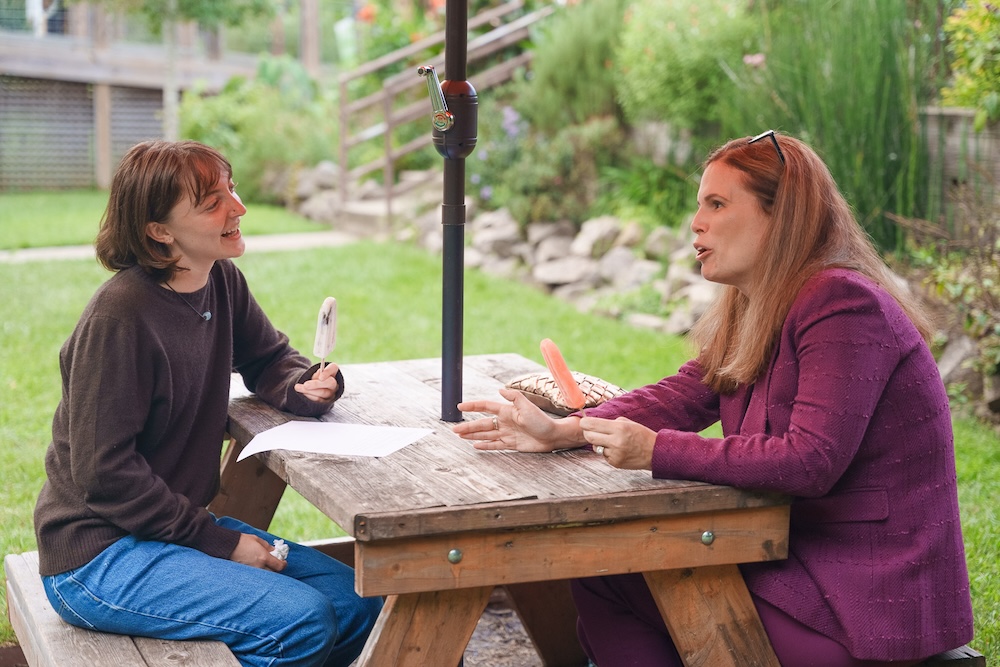
Allison Riggs: A decision that I wrote at the Court of Appeals [is] pending before the North Carolina Supreme Court. I’m recused, so I won’t get into the merits. It was a case called McKinney v. Goins, and I wrote the opinion at the Court of Appeals.
It was a challenge to a law in North Carolina that created opportunities for victims of child sex abuse to hold their abusers and their enablers accountable. I wrote a really long, carefully researched opinion at the Court of Appeals — it’s called the SAFE Act — tracing whether or not the legislature was allowed to pass these kinds of laws or not.
I recognize we’ve learned a lot about the psychology around child sex abuse, and many folks who have been victimized have delayed disclosure because of the trauma associated with that.
It was an important law, and I was really honored to be part of the court cases surrounding it.
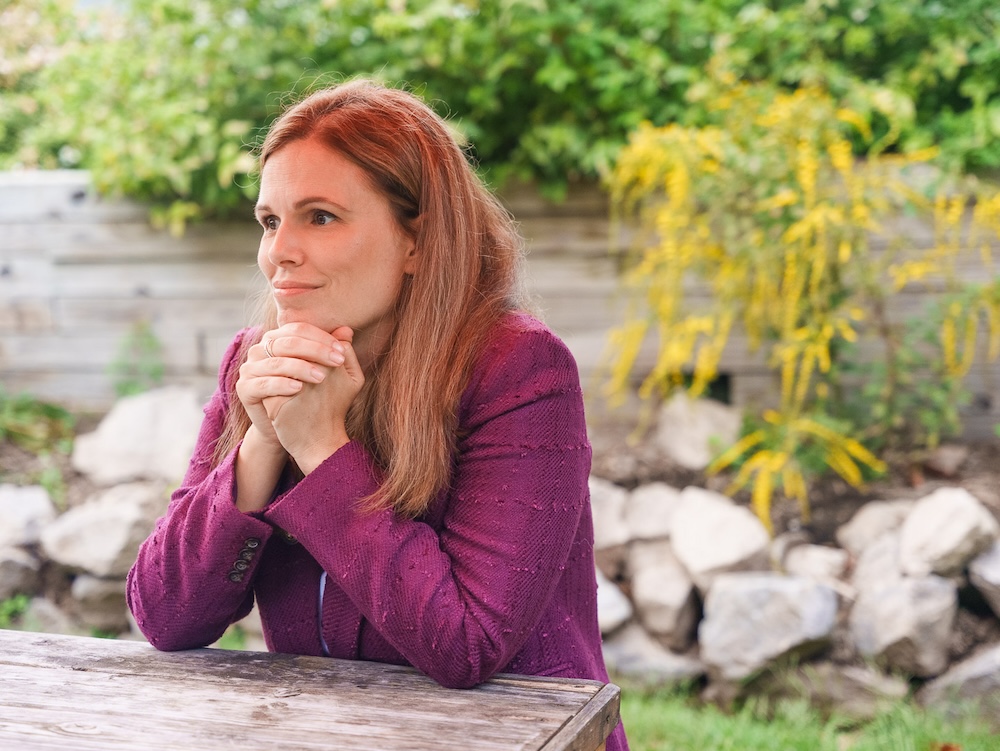
Allison Riggs: Maya Angelou had a saying, ”When someone shows you who they are, believe them the first time.” My opponent has a record at the Court of Appeals that I think should trouble North Carolina voters. I think elections are about accountability, and so this isn’t about slinging mud. It’s about making sure that voters know what our records are.
My opponent wrote a concurrence that said there’s no racial bias in the criminal justice system. He signed onto an opinion — since withdrawn — that said life begins at conception. That same legal ruling from the Alabama Supreme Court caused women in Alabama to lose access to reproductive health care, even if they were mid IVF treatment.
These are things that voters should know about and be concerned about, and hopefully why they vote for me. My record shows that I value reproductive freedoms. I value racial justice across the board, but certainly in our criminal justice system.
My opponent certainly talks about defending the rule of law and defending the Constitution. Those are things that I believe in deeply, so at least on paper, we match on that front. But I think you have to go beyond the tagline, and ask whether a judge’s record actually supports what they claim there they stand for.
9th Street: You obviously have a strong background in civil litigation. How might that background help shape your rulings on the state Supreme Court?
Allison Riggs: I’m proud of the fact that I am a very experienced appellate attorney. A lot of people either do trial work or appellate work. It tends to cleave. I had a really unique practice where I got to do both.
I’ve argued in state Appellate Court and state Supreme Court, the Fourth Circuit, the Fifth Circuit, and twice in the United States Supreme Court, and I sit on an appellate bench….
The first time I argued in the United States Supreme Court, I was eight years out of law school, so I was fairly young. I stood up at the podium, and I was a little nervous, and Justice Kagan gave me a gentle, affirming smile, not anything over the top, but just to say — or at least I read it as — ”You’re welcome here. I’m interested to hear what you have to say. I know you’ve worked hard, and this is important to you and your clients. Make your best argument.”
To me, that was really important. It’s a small act, but it does a lot to build faith and trust and respect for the judiciary. You don’t get extra points by being gruff or harsh.
That was such a meaningful moment in my career that I try to do that on the bench, to make sure that every attorney, regardless of how the case goes, that they know that I’m interested, engaged, curious, and I appreciate the hard work it took to get them there.
Esme Fox: What is a recent book that you’ve read, and what stands out to you about that book?
Allison Riggs: I normally read 100 books a year, and it’s my favorite thing to do in my free time. I have not gotten to read nearly as much [this year].
I listened to an audio book recently called “The Quiet Damage.” It was sort of a sociological study of five different families whose family member had been pulled into Q-Anon. These were folks who were from liberal and conservative backgrounds. It was a study of their trajectory in getting pulled into online conspiracy theories, the impact it had on their families, and what the pathways were once they fell into this cult kind of thinking.
I’m really interested in those family dynamics, but also always want to reach out to folks who have different thoughts or opinions than me.
I’m always in the middle of five or six books at least. I usually have two fictions, one a sort of fluffier one, one a more serious one. Then I like to always have a book of short stories or essays that I’m listening to. And then usually a couple of nonfiction.
This year, it’s been almost all nonfiction, just because I listen when I drive and that’s about it. On audio, I can’t do fiction because I can’t follow the story as much.
I’m looking forward to resuming fiction — to hitting 100 again next year.
Above: Allison Riggs and Esmé Fox discuss her candidacy at Locopops in Durham. Photos by Kulsoom Rizavi — The 9th Street Journal
Esmé Fox

